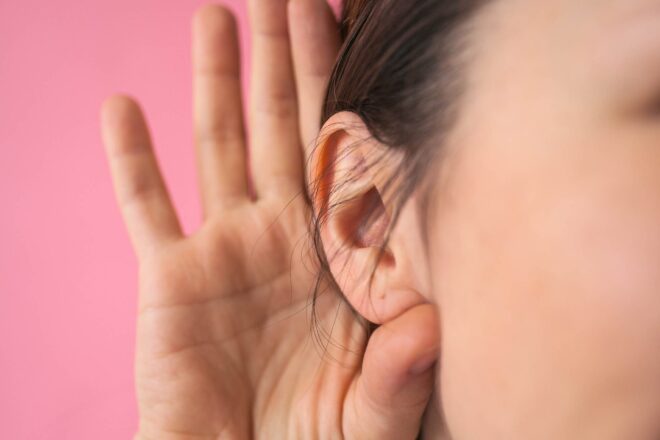Allergies and Hearing Loss
People typically associate allergies with sneezing and watery eyes, but since your ears can also be affected, American Hearing Centers in New Jersey want patients to understand how allergies can cause hearing loss. For allergy sufferers and those with existing hearing problems, knowing the connection between allergens and hearing health is crucial.
What Causes Allergies?
Why do we have allergies and what makes a person allergic to something? Some people are just more sensitive to environmental factors than others. An allergy is your body’s natural response to substances it mistakenly deems a threat, even if it’s something harmless, like dust. When an allergen is detected in the body, the immune system releases histamines into the bloodstream to fight the threat, producing inflammation, swelling, mucus, and itchiness. Respiratory symptoms are common, but allergies can affect other areas of the body, including the ears. Common airborne allergens include:
- Pollen
- Dust
- Pet dander
- Mold
The Link Between Allergies and Hearing Loss
Allergies can indirectly affect your ears through several mechanisms. Swelling and congestion can cause blockages that result in a feeling of fullness or clogged ears, and may even cause temporary hearing loss. In some cases, fluid can build up in the middle ear, acting as a sound barrier. These situations can make it difficult for sound waves to travel through each part of the ear for the brain to process them correctly. Any portion of the ear can be affected by allergens.
The Inner Ear
When allergens enter the nasal passage, histamines produce excess mucus. Unlike a cold, which comes with yellowish mucus, allergy mucus is usually clear and water-like. If a person has other ear-related conditions, such as Ménière’s disease, excess mucus production for the inner ear can lead to balance issues, hearing loss, and tinnitus.
The Middle Ear
Allergens in the nasal passage can also cause issues with the middle ear, even for those without a history of ear problems. Excess mucus can settle in the middle ear as it builds up. Your Eustachian tube is responsible for draining excess mucus from the middle ear to the back of the throat. If the tube becomes clogged from buildup, you’ll experience clogged ears, possible pain, and potential hearing loss.
The Outer Ear
Airborne allergens that enter the outer ear canal will also call histamines into battle against this perceived threat. The symptoms in this area can include inflammation, itching of the ears, and even swelling. In severe cases, this can cause conductive hearing loss, which blocks sound from reaching the eardrum.
How Long Do Allergy Symptoms Last?
Allergies to things like dust, pollen, and pet dander are usually life-long conditions. An allergic episode lasts as long as you’re exposed to the allergen. If you’re allergic to cats, symptoms will immediately start when you enter a room with a cat or cat dander. However, once you leave, the symptoms will subside. After a long winter, opening some windows in the spring to let in fresh air might seem like a good idea, but this invites pollen into your home which will spark your allergic reaction right away.
Preventing Allergies and Protecting Your Hearing
Taking steps to manage allergies can mitigate the risk of associated hearing loss. Use over-the-counter antihistamines and decongestants to control allergy symptoms. Identifying and minimizing exposure to allergens are also effective strategies. Keeping your home clean and using air purifiers can help reduce the number of allergens in your environment.
Seeking Medical Help
If you experience ear pain from allergies, sudden hearing loss, or clogged ears without relief, it’s essential to consult a healthcare professional. These symptoms could indicate a more significant issue, such as an allergic reaction ear infection, or other complications. Remember, ear health shouldn’t be taken lightly; when in doubt, consulting with your hearing care provider is essential to your overall health.
Learn More About Ear Care
The team at Hearing Care Centers in New Jersey can help you understand the complex relationship between allergies and hearing loss. Recognize the signs of allergies affecting your hearing, and take proactive measures to address the symptoms. If you face persistent issues, contacting your ear health provider is crucial. Adults over 50 should be especially aware of changes in their ears because they are at the age when sensorineural hearing loss becomes more common. Contact one of our hearing care locations near you for a proper assessment and treatment of any hearing issues. Even seemingly minor symptoms can turn out to be significant health issues. Stay well-informed and attentive to your body’s signals.



